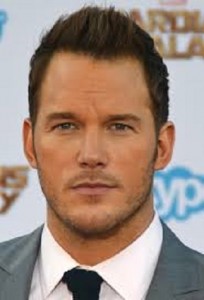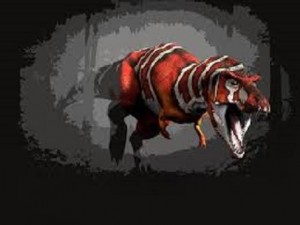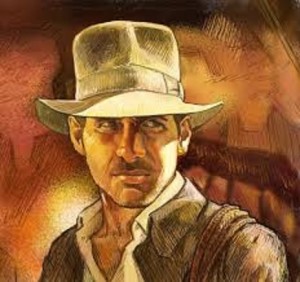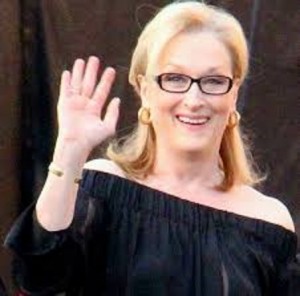Jurassic World (2015, USA) has good guys and bad guys when it comes to who is better able to relate to animals and bonding with animals seems the better way.
The theme of bonding with animals has been present before. In Crocodile Dundee (1986, Australia), outback man Mick Dundee (Paul Hogan), a true Aussie, is able to calm a wild animal with the use of his fingers. The reporter assigned to write about him is fascinated. Mick has been bonding with the beast, which has given him an ability to communicate with the animal.

Owen (Chris Pratt) bonds with the raptors under his care in an amusement park and like Mick Dundee can calm the beast. Jurassic World makes us predict who will get chomped; they’re the guys who don’t relate well to animals.
The interaction between humans and beasts is complicated by the desire in humans to exploit the animal world for selfish financial gain. Jurassic World seems to be saying that when people misuse animals, there is a declining relationship between animal and beast. If humans exploit animals, they affect the animal, as well as themselves.
In Jurassic World, profiteers have managed to create bigger and better monsters in the laboratory, to keep amusement park audiences thrilled. In true Jurassic Park fashion, the scientist’s re animations aren’t friendly. A genetically modified T-Rex rampages through the amusement park, in Central America, a consequence of tampering with nature.
Though would we call a genetically modified dinosaur really an animal?
It lives and breathes like an animal, with all the instincts of animals, so it is an animal, says Owen.
I am a meat eater, but there is a world of difference between using animals for sustenance and using them for selfish financial gain that ends up doing no one any good.
Rated PG-13 for intense sequences of science fiction action and peril


